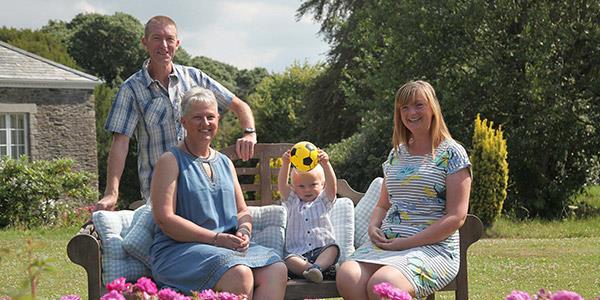
Visiting Spain any time soon? Take a look at some of their most popular superstitions in Spanish culture.
Every culture has its own interesting and, sometimes baffling, traditions and superstitions. If you're off to Spain, have a read of some of the most popular Spanish superstitions and find out where they've come from.
Spanish Superstitions
1. Tuesday Blues
While the UK is traditionally wary of Friday the 13th, in Spain it is supposedly a Tuesday that is the bad luck day. On Tuesday the 13th people have been known to avoid getting married, going on a boat, embarking on a journey and even leaving the house!

There are several variations of the saying: Martes, ni te cases, ne ti embarques (Tuesday, neither get married, nor embark).
Unlucky 13 is a deep rooted concept that spans a number of cultures and religions… but why Tuesday? Well, Spanish is a Romance language whose origins lie in Latin; the days of the week are named after Roman gods. Martes, the Spanish for Tuesday, comes from Mars, the god of war.
Why would anyone want to travel on a day ruled by the god of war? That's just foolhardy!
2. Hats on Heads
When you come in from a day out, where do you chuck your hat? In Spain, to put your hat on the bed is a really bad idea, it'll bring you bad luck!

Could the origins of this superstition lie in the old belief that evil spirits lived in the hair and the air around a person's head? It is maybe due to the static electricity that occurred when removing a hat (particularly one lined with fur) that people once believed in the presence of evil spirits. It probably wasn't advisable to leave a hat somewhere the evil spirits could easily escape onto your bed.
Alternatively, the hat is generally a representation of the mind, thoughts and identity. Leaving your hat on the bed may have been symbolic of loosing your mind.
Or maybe it's more simple. A couple of sources suggest that the reason people never accepted someone leaving a hat on their bed was purely to prevent the spreading of headlice!
Whatever the reason. It's a bad omen – when in Spain, remember to hang your hat up.
3. The Power of Plants
As you walk the little streets of quaint Spanish towns, past white-washed houses, you will probably notice the abundance of cacti. If you're sitting in a restaurant, visiting a guesthouse, hotel or cafe, it's likely you'll see them perched in windows, by entryways and above doors. What has become a traditional Mediterranean sight has a lot to do with the climate: cacti are really common in this area and thrive in the warm, sunny, dry atmosphere of Spain. It makes sense for them to be the potted-plant of choice for attractive displays. But does the reasoning behind their ubiquity actually run deeper than convenience?

Well, yes! Traditionally quite a superstitious culture, as we've seen, the Spanish were rather concerned with the presence of evil spirits. It is said that the reason a cactus is placed at an entryway to a building, is because it is good at warding off evil. The cactus absorbs moisture from the air and any evil spirit trying to cross a threshold will drown in it. That's the hope, anyway, and the spirit would then be trapped there forever.
4. Beware the Broom
Brooms have been known to be very risky household objects! It is tradition in Spain to buy a new broom for a new house, you shouldn't take your old one with you if you move, or else it will bring with it all the bad luck from your old house. Think how many dropped gasses, broken mirrors and shattered plates it's swept up in its time. Best to get a new one with no history whatsoever.

Did you know that brooms also have the ability to determine your fate? Apparently if you are sweeping you must avoid sweeping your broom over the feet of a single woman or else she will never get married. There are variations of this superstition: some say you should avoid widows too and others say single men are just as much at risk. Basically, if you're single – avoid brooms, just to be safe! It has been suggested that the superstition originates with tales of witches. Others say that it simply comes from the outdated idea that if a single girl is not doing her own sweeping, she surely won't make a very good wife…
5. Devilish Colour Schemes
Stay away from the colour yellow if you're a superstitious person in Spain! The colour yellow traditionally represents sulphur and the devil. There are a number of superstitions surrounding yellow: you're not supposed to wear yellow on an important day, such as for an exam or interview, as it will surely bring you bad luck. Don't buy yellow clothes as a gift – it is not done to gift a friend or family member with yellow clothes. And certainly don't give yellow clothes as a gift for a baby! Apparently it will bring the evil eye.

Extra: Spanish supersitions pregnancy
Continuinng with the 'yellow' theme, what is considered in England as a neutral tone for a nursery would be considered a really bad idea for superstitious parents-to-be in Spain. Baby showers and simialr celebrationsa re commonm but certainly don't give yellow clothes as a gift for a baby! Apparently it will bring the evil eye.
Good luck in Spanish
So how do you say good luck in Spanish? If you're looking for a way to pass on some good wishes to a Spanish-speaking friend, here are a few options:
Buena Suerte is the most common way to wish someone good lick in Spanish. It's a literal translations of 'good luck' and can be used in almost all situations. Mucha suerte is a similar phrase, used identially, which translates to 'a lot of luck'.
Que te vaya bien is another expression. This translates to 'may it go well for you', and is also used to say things such as 'take care'. It's often used at the end of a conversation.
¡Éxitos! is the final phrase we will look at. It means 'Successes!' and is used as an exclamation. It's also often used to sign off an email or letter.
Frequently asked questions
What is considered good luck in Spain?
One of the most famous Spanish traditions for good luck is the Twelve Lucky Grapes. Every New Year, young and old will attempt to eat twelve green grapes – one every time the clock strikes leading up to midnight.
Know some other interesting superstitions? I'd love to hear yours. Leave a comment below.
Stay in Spain yourself and see if you can spot any evidence of these interesting superstitions along the beautiful Costa Blanca. Our popular timeshare alternative makes this possible. Find out how to stay in the stunning villas of Jávea by entering your details at the bottom of the page.

